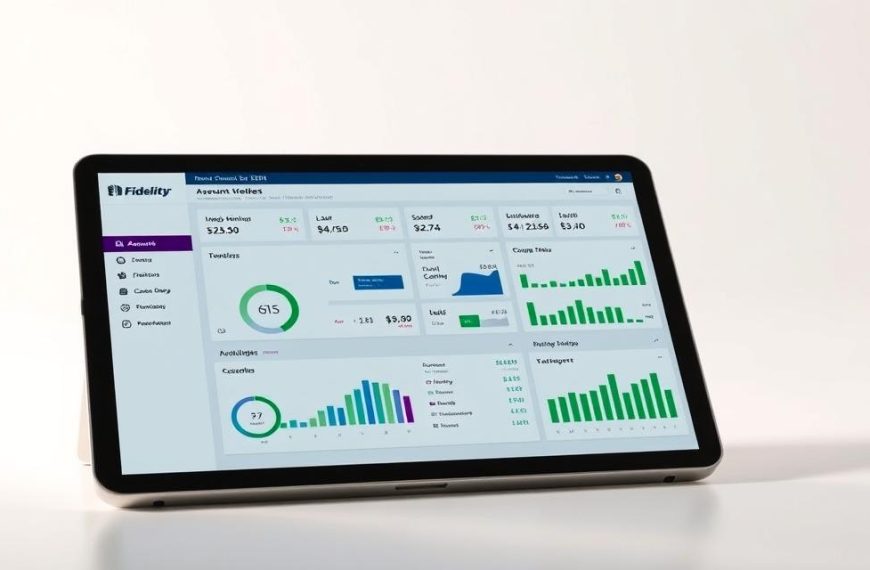Obtaining business loans without pledging collateral is a significant opportunity for entrepreneurs who need capital. However, navigating this process independently comes with both advantages and challenges.
Unsecured business financing represents a viable option for business owners who require funding without risking their assets. This type of financing differs from secured loans, as it relies on the borrower’s creditworthiness rather than a tangible guarantee.
Managing unsecured business financing independently can be beneficial, potentially saving on broker fees and commissions. However, it is crucial to understand the specific requirements and potential drawbacks of this approach to determine if it aligns with your business capabilities and financial objectives.
Understanding Unsecured Business Financing
Unsecured business financing is a vital option for businesses that require capital without risking their assets. This type of financing is particularly beneficial for businesses that do not have substantial physical assets or for those that are unwilling to risk their existing assets.
What Is Unsecured Business Financing?
An unsecured business loan is a type of financing that doesn’t require collateral. Unlike secured loans, which require borrowers to pledge assets such as real estate or equipment as security, unsecured loans are approved based on the creditworthiness of the borrower. For new business owners seeking their first loan, lenders typically evaluate the applicant’s personal credit score and business credit score.
- Unsecured business financing refers to funding options that don’t require collateral or specific assets to secure the loan.
- Unsecured business loans are primarily based on the creditworthiness of the business and/or the business owner.
How Unsecured Business Loans Work
The disbursal and repayment process for any unsecured business loan depends on the type of loan applied for. In most cases, an unsecured business loan refers to a term loan, involving a lump-sum disbursal combined with fixed monthly payments for a predetermined repayment period. Understanding the mechanics of unsecured business loans is essential for entrepreneurs considering the DIY approach.
- Unsecured business loans generally feature higher interest rates compared to secured options.
- Common types of unsecured business financing include term loans, lines of credit, and merchant cash advances.
Can You Do Unsecured Business Financing by Yourself?
Entrepreneurs often wonder if they can handle unsecured business financing on their own without relying on financial intermediaries. The answer lies in understanding the intricacies of business financing and the capabilities of the business owner.
The DIY Approach to Business Financing
The DIY approach to business financing involves personally researching loan options, preparing documentation, comparing lenders, submitting applications, and negotiating terms without the assistance of brokers or financial advisors. This method requires a significant amount of time and financial knowledge but can be cost-effective.
- Managing unsecured business financing independently is possible for entrepreneurs with sufficient financial knowledge and organisational skills.
- Self-management makes sense for business owners with strong financial literacy and experience with credit applications.
When Self-Management Makes Sense
Self-management of business financing is particularly beneficial for small business owners with straightforward financing needs, such as smaller loan amounts or standard business purposes. Entrepreneurs should realistically assess their knowledge of financial products and capacity to manage the time-intensive process of securing business financing.
- Establishing a separate business entity with its own credit profile reduces the need for personal guarantees.
- Building solid business credit is contingent on the company’s performance, credit, and payment history.
By strategically planning from the beginning, business owners can build solid business credit that eliminates the need to sign a personal guarantee to get business loans. Understanding how business loans work and the challenging process of getting them separate from personal credit is crucial.
Pros of Handling Unsecured Business Financing Yourself
Handling unsecured business financing independently can be a strategic move for businesses looking to save on costs and maintain control over the financing process. By taking charge of your financing, you can reap several benefits that can positively impact your business.
Cost Savings on Broker Fees
One of the most significant advantages of handling unsecured business financing yourself is the potential to save on broker fees, which can range from 1-5% of the total loan amount. This can result in substantial savings, particularly for larger financing packages. For instance, on a £100,000 loan, you could save between £1,000 and £5,000.
Complete Control Over the Process
Managing your own unsecured business loan application gives you complete control over the process, allowing you to directly communicate with lenders and eliminate potential miscommunications. This control also enables you to align the financing process with your business’s specific needs and schedule.
Building Valuable Financial Knowledge
By handling your own unsecured business financing, you build valuable financial knowledge and expertise, enhancing your ability to make informed financial decisions in the future. This knowledge can also be beneficial for future financing needs, potentially leading to preferential terms or expedited processes.
| Benefits | Description |
|---|---|
| Cost Savings | Save on broker fees ranging from 1-5% of the total loan amount |
| Control | Directly communicate with lenders and manage the financing process |
| Financial Knowledge | Build expertise and make informed financial decisions |
Cons of DIY Unsecured Business Financing
While handling unsecured business financing independently can be cost-effective, it comes with several drawbacks that businesses must consider.
Time-Intensive Research and Applications
The DIY approach to unsecured business financing is exceptionally time-intensive, requiring extensive research into loan products, lender requirements, and application procedures. This time could otherwise be spent on core business operations. Businesses must weigh the benefits of cost savings against the potential loss of productivity.
Limited Access to Lender Networks
Without established relationships in the lending industry, independent business owners may have limited access to exclusive lender networks. This limitation might cause them to miss opportunities for specialised financing options that aren’t widely advertised. As a result, businesses may not secure the most competitive interest rates or terms.
| Lender Type | Interest Rate | Loan Terms |
|---|---|---|
| Traditional Banks | 8% | 3-5 years |
| Alternative Lenders | 12% | 1-3 years |
| Online Lenders | 15% | 6-18 months |
Higher Risk of Unfavourable Terms
Inexperienced borrowers face a higher risk of accepting unfavourable terms, including higher interest rates, shorter repayment periods, or hidden fees. An experienced financing professional might identify and negotiate these terms, potentially saving businesses from costly financing arrangements.
Essential Requirements for DIY Financing Success
To successfully manage unsecured business financing independently, several key requirements must be met. Ensuring these elements are in place can significantly enhance the likelihood of securing favourable financing terms without professional assistance.
Building Strong Business Credit
Establishing a robust business credit profile is fundamental to DIY financing success. This involves strategically setting up trade lines with suppliers, ensuring timely payment of all business obligations, and regularly monitoring business credit reports from agencies like Dun & Bradstreet to maintain a healthy credit score. A strong business credit history can improve your chances of obtaining unsecured business loans.
Required Documentation and Preparation
Successful self-managed financing requires meticulous preparation of essential documents, including organised financial statements, tax returns, business plans, cash flow projections, and bank statements. All these documents should be professionally presented and readily available to streamline the application process for business loans. Proper documentation demonstrates professionalism and reliability to lenders.
Understanding Personal Guarantees
Understanding personal guarantees is crucial when pursuing unsecured business financing. Most lenders require business owners to personally guarantee repayment, effectively putting personal assets at risk despite the “unsecured” classification of the loan. Establishing your business as a separate legal entity with its own credit profile is essential for eventually reducing reliance on personal guarantees.
Step-by-Step Guide to Securing Financing Independently
Taking control of your business financing journey can be both empowering and challenging. To navigate this process successfully, it’s essential to break it down into manageable steps.
Researching Suitable Loan Options
Begin by thoroughly researching suitable loan options, including traditional term loans, lines of credit, SBA loans, and alternative financing solutions. Evaluate each based on your specific business needs, timeline, and financial situation. Consider factors such as interest rates, repayment terms, and associated fees to determine the best fit for your business.
Preparing Your Application Materials
Prepare comprehensive application materials by gathering all required documentation, including business financial statements for the past 2-3 years, tax returns, bank statements, business licences, and legal entity documentation. Ensure your business credit profile is robust, as this will significantly impact your loan application’s success.
Comparing Lenders and Terms
Create a systematic comparison framework for evaluating lenders and their terms. Consider not only interest rates but also repayment periods, fee structures, prepayment penalties, funding speed, and customer service reputation. This thorough comparison will help you identify the most suitable business loan for your needs.
Submitting Applications and Following Up
Develop a strategic application timeline that allows for sequential rather than simultaneous applications to minimise credit inquiries. When submitting applications, ensure all documentation is complete, accurate, and professionally presented. Establish a proactive follow-up system to track application status and maintain professional communication with lender representatives.
By following these steps and being diligent in your business financing journey, you can increase your chances of securing the right unsecured business loan for your business needs.
Common Mistakes to Avoid When Handling Financing Yourself
When managing business financing independently, several pitfalls can be detrimental to your financial stability. To ensure a smooth financing process, it’s crucial to be aware of these potential mistakes.
Overlooking the Fine Print
One critical error is overlooking the fine print in loan agreements, particularly regarding variable interest rates, prepayment penalties, and personal guarantee requirements. Such oversights can significantly impact your business’s financial health.
Applying to Too Many Lenders Simultaneously
Applying to multiple lenders at once can damage your credit score due to numerous hard inquiries, potentially leading to loan rejections or unfavourable terms.
Neglecting to Negotiate Terms
Many self-directed borrowers fail to negotiate terms, accepting initial offers without realising that lenders often have flexibility on interest rates and repayment schedules, particularly for businesses with strong financial profiles.
To avoid these mistakes, businesses must be diligent in their financing efforts, ensuring they understand all aspects of the loan and negotiate favourable terms.
Conclusion: Is DIY Unsecured Business Financing Right for You?
The world of unsecured business financing is complex, and navigating it independently requires careful consideration. When deciding whether to pursue DIY unsecured business financing, it’s essential to assess your financial knowledge, available time, and comfort with complex financial processes.
For business owners with strong financial literacy and established business credit, the self-directed approach can yield substantial cost savings. However, entrepreneurs with limited financial expertise may find greater value in professional assistance. A hybrid approach, handling some aspects yourself while seeking professional advice for complex elements, offers a balanced solution.
Regardless of your chosen approach, investing in building strong business credit remains crucial for long-term financing success. Ultimately, successful DIY unsecured business financing requires not just securing initial funding, but also managing that financing responsibly to support your business’s growth.














